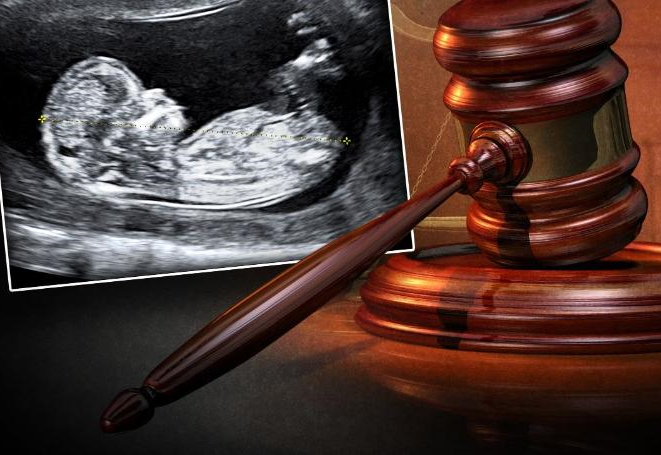The UK Supreme Court handed down a devastating opinion Thursday against the pro-life laws of Northern Ireland.
In its ruling, the high court claimed Northern Ireland’s protections for unborn babies are incompatible with the European Convention on Human Rights, Sky News reports.
Supreme Court President Lord Mance, responding for the majority in the 4-3 ruling, claimed these protections against abortion cause “ongoing suffering” and “clearly need radical consideration.”
Despite the court’s strong opinion, the ruling did provide a victory for the unborn.
The UK court threw out the case, saying the Northern Ireland Human Rights Commission, a pro-abortion group, does not have the right to sue. The justices also said they do not have the jurisdiction to change or strike down the law, according to The Globe and Mail.
Northern Ireland assembly member Jim Wells expressed relief about the ruling in an interview with Reuters.
“Had it gone the wrong way Northern Ireland would have faced abortion on demand,” Wells said.
Bernadette Smyth, director of Precious Life, said the court rightly upheld the democracy of Northern Ireland.
“This court made a ruling that this court has no right to make decisions for Northern Ireland,” she said.
“Our laws matter because every life matters.”
The Globe and Mail reports more:
The Northern Ireland Human Rights Commission had argued that the law should be changed to allow abortions in cases where pregnancies were as a result of rape or incest, or in cases where the fetus had a fatal abnormality.
… Northern Ireland’s elected assembly has the authority to decide on any changes to its abortion laws. It voted against legislating in cases of fatal fetal abnormality and rape in February 2016 and the assembly has not sat since the devolved government collapsed in January 2017.
But the court’s opinion is encouraging abortion activists to continue their fight to strip all rights from unborn babies. Court President Mance even suggested how Northern Ireland abortion activists could overturn the law.
“[A] victim of the existing law would have standing to pursue similar proceedings,” he said. “Those responsible for ensuring the compatibility of Northern Ireland law with the convention rights will no doubt recognise and take account of these conclusions.”
SUPPORT PRO-LIFE NEWS! Please help LifeNews.com with a donation to share the pro-life message
Fueled by Ireland’s repeal of its pro-life constitutional amendment in May, abortion activists now are pushing Northern Ireland to abandon its protections for unborn babies as well. Sections 58 and 59 of its Offenses Against the Person Act make it a crime to abort an unborn baby. If those sections would be repealed, there would be no protections whatsoever for unborn babies at any stage of pregnancy in Northern Ireland.
Pro-abortion politicians, including British Prime Minister Theresa May, also are urging Northern Ireland to strip away all protections for babies before birth. They held an “emergency” debate Wednesday where pro-abortion Labour MP Stella Creasy claimed legalized abortion is “about dignity” for women.
However, May and Karen Bradley, secretary of Northern Ireland, have said the people and politicians of Northern Ireland should be the ones to decide the matter, not the British parliament. The UK Supreme Court agreed Thursday.
Abortion activists’ proposal for Northern Ireland is extreme. According to Precious Life in Northern Ireland, it would allow unborn babies to be aborted for any reason up to birth all across the UK.
“[T]he Offences Against The Person Act does place some restrictions on abortion, so repealing it would result in the UK having one of the most extreme abortion regimes in the world,” the pro-life group said. “If repealed, there would be no law restricting or regulating abortion, and would allow unborn babies to killed for any reason, at any time during pregnancy, right up to the moment of birth.”








